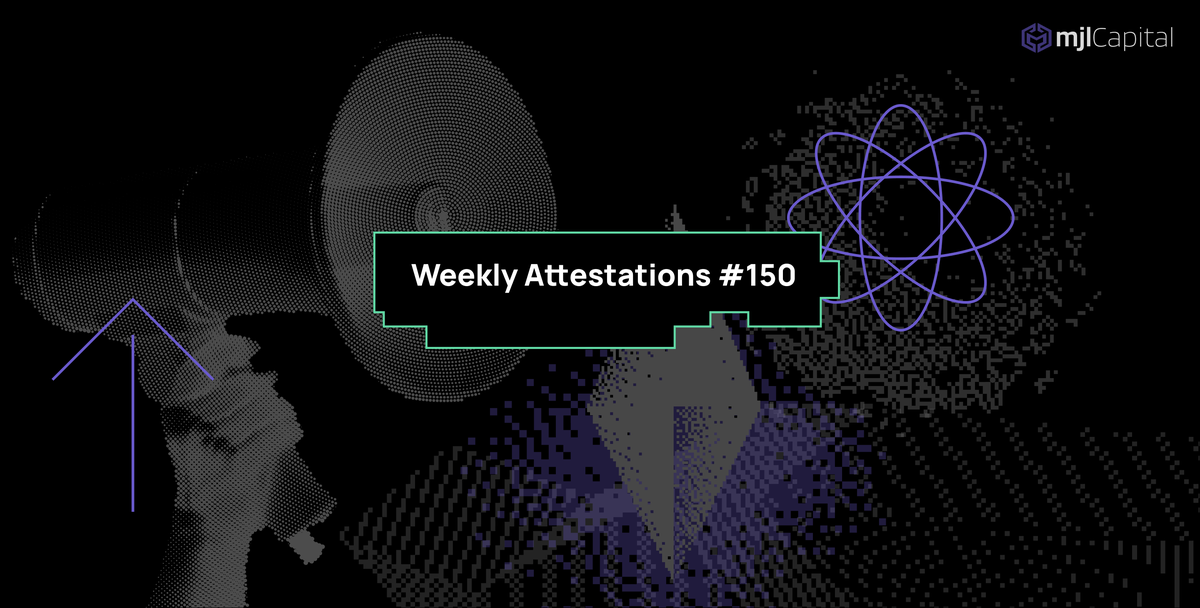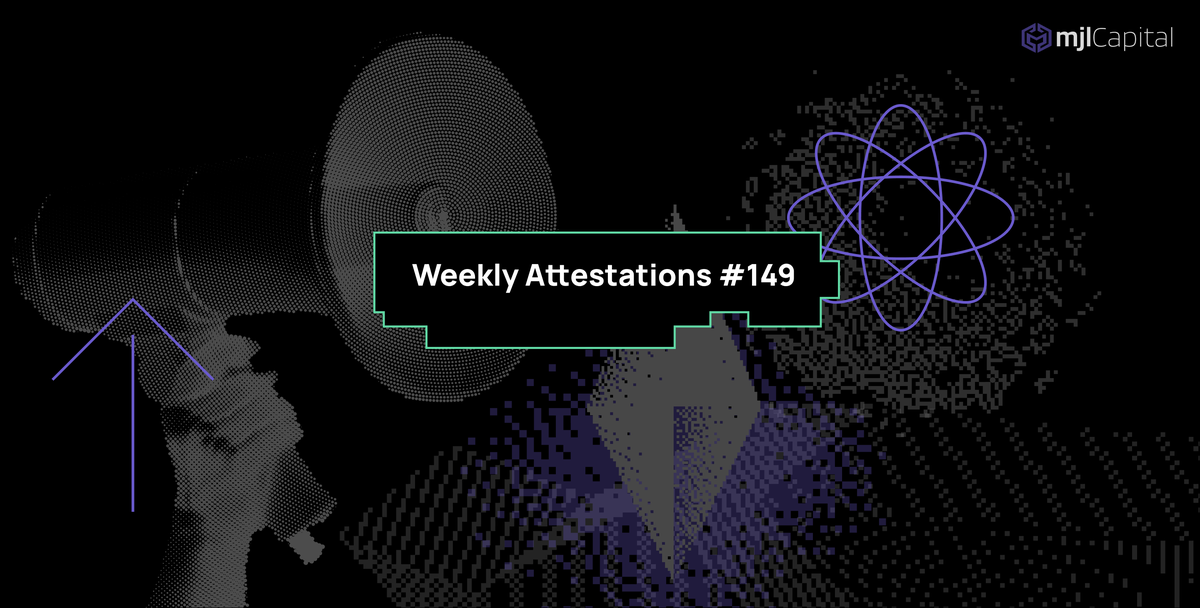Weekly Update
The biggest stories of the week emerged from the Bitcoin 2024 conference in Nashville, where former President Donald Trump signaled a substantial shift in his stance on digital assets, promising that, if elected, he would make the United States the "crypto capital" of the world and end the "anti-crypto crusade." As Trump took the stage on Saturday, quick-profit traders aimed to capitalize on the pre-event rally, causing a 3% dip that swiftly rebounded as Trump met expectations. He reinforced the Strategic Bitcoin Reserve (SBR) concept, focusing on retaining seized Bitcoin indefinitely, which is less aggressive than outright purchases. Trump emphasized regulatory improvements to spur innovation and plans to fire Gensler on his first day. With 99 days until the election, Trump's Polymarket odds stand at 61%. Post-speech, BTC, which is up ~30% since its July 5th low of $53.8k, tested $70k.
The political interest in crypto appears to be intensifying, with independent candidate Robert F. Kennedy Jr. also running for the US presidency, promising to sign an executive order to buy 550 BTC daily until the US reaches 4 million BTC ($277 billion) if he gets elected. Vice President Kamala Harris' team reportedly reached out to industry leaders to develop a more crypto-friendly stance. Meanwhile, the pro-crypto super PAC 'Fairshake' raised over $200 million, making it the largest super PAC.
In other news, last week's Q2 GDP and inflation numbers slightly exceeded expectations. However, PCE inflation decreased significantly from 3.4% in Q1 to 2.8% in Q2. The ISM survey, a key economic indicator, shows more weakness in manufacturing and services than the GDP growth suggests, which helps explain why market expectations for a September rate cut remain unchanged despite the positive economic surprises.
Top Stories
Crypto and AI Firms Collaborate to Share Computing Power Amid Rising Costs
The convergence of crypto mining and AI is gaining momentum due to both industries' substantial demand for computing power. Increasing energy costs and reduced post-halving rewards are prompting mining firms to diversify into AI. Houston-based Lancium is collaborating with Denver's Crusoe Energy Systems to build a 200-megawatt data center for AI workloads using renewable energy sources. Core Scientific, listed on Nasdaq, is partnering with Nvidia-backed CoreWeave for AI cloud services, anticipating $4.7 billion in revenue over twelve years from rentable AI chips. Bit Digital has struck a $275 million deal to rent space in Iceland for AI firms, while TeraWulf is allocating two megawatts of zero-carbon nuclear energy for high-performance computing to attract AI partnerships. Canadian miner Hive and U.S. hedge fund Coatue Management are also investing heavily in AI infrastructure, with Coatue contributing $150 million to Hut 8 for upgrading to AI requirements.
Ethereum's Burn Rate Slumps 67% in Q2, Threatening Deflationary Narrative
Ethereum's deflationary momentum faltered in Q2 2024, with the burn rate plummeting by 67%, resulting in the highest quarterly inflation since transitioning to Proof of Stake in September 2022. CoinGecko's report highlights that only 107,725 of the 228,500 newly issued ETH were burned, leading to a net increase of 120,800 ETH ($421.3 million). Ethereum's supply rose above 120.2 million for the first time since December, inflating by 50,000 to 60,000 ETH weekly. The drop in burn rate, influenced by low gas fees (down to 1.9 gwei), poses a challenge to Ethereum's deflationary appeal that attracted many investors post-Merge. Additionally, the Dencun upgrade in March, which cut Layer 2 transaction costs, significantly reduced the fees paid by networks like Arbitrum and OP Mainnet. Despite low fees boosting adoption, the deflationary promise appears compromised .

Source: CoinGecko
DEX Market Share and Solana's Role in DeFi Growth
Despite a sluggish summer in the crypto market, Total Value Locked (TVL) and trading volume have surged, nearing levels seen in the last bull market. Notably, Decentralized Exchange (DEX) trading volume now commands a record 15% of the market share compared to Centralized Exchanges (CEX). Solana, along with Ethereum, significantly contributes to this DEX market share growth, with Solana and Base tokens accounting for over 95% of new token supplies on DEXes, though many are meme tokens. Solana's DEX ambitions are furthered by Jupiter's Giant Unified Market Initiative (GUMI), which aims to tokenize and trade all asset classes on Solana's high-performance blockchain, aligning with its vision of becoming the Nasdaq on blockchain. While regulatory challenges remain, such as Uniswap's ongoing SEC battle, Solana's innovative approach and robust ecosystem position it as a preferred trading venue over traditional CEXes.

Source: DefiLlama
FDUSD Faces Challenges Amid Declining Supply and Binance Fee Changes
FDUSD, a key player in the stablecoin market, has seen its total supply plummet from a peak of $4.42 billion to $1.9 billion, raising concerns about its future in the competitive stablecoin sector. This drop coincided with Binance's decision to end its "zero trading fee" promotion for various trading pairs, including BTC/FDUSD, affecting trader behavior and FDUSD demand. Despite this, FDUSD still holds a significant presence on Binance, with 33.55% of spot trading volume in June, indicating some user loyalty. The situation underscores the importance of balancing short-term growth tactics with long-term value propositions. As other stablecoins like Ethena’s USDe gain traction, FDUSD’s lack of additional incentives or yield options may be a disadvantage. This scenario highlights the necessity for stablecoin issuers to innovate continuously and focus on sustained user engagement to remain relevant in the evolving crypto market.

Soure: The Block
Regulation
Key Highlights from the Bitcoin Conference
MicroStrategy's Michael Saylor presented his bullish vision for American owned Bitcoin, predicting annual returns between 21% and 37% over the next 21 years, which could see Bitcoin reaching $3 million. Saylor's confidence is rooted in Bitcoin's fixed supply and the ongoing devaluation of the dollar. Meanwhile, presidential candidate Robert F. Kennedy Jr. proposed the United States purchase 4 million Bitcoin as a strategic reserve, buying 550 Bitcoin daily. While ambitious, this plan's feasibility is doubtful given Bitcoin's illiquidity, with over half its supply unmoved for two years. Kennedy's strategy aims to position the U.S. as a major Bitcoin holder, even if achieving the full 4 million target seems unlikely. Former President Donald Trump delivered a pro-Bitcoin speech, advocating for retaining the U.S. government's existing 200,000 Bitcoin as a "strategic stockpile." Trump's reluctance to call for further national Bitcoin purchases contrasts with Kennedy's approach. Additionally, Trump's promise to fire SEC Chairman Gary Gensler resonated strongly with the audience, reflecting his growing pro-Bitcoin stance. Senator Cynthia Lummis followed with a significant announcement of proposed legislation requiring the U.S. government to acquire 1 million Bitcoin. Lummis likened this move to the historical Louisiana Purchase, emphasizing its potential to reduce national debt and strengthen the U.S. financial position.
Mixed Debut for U.S. Spot Ethereum ETFs
Last week marked a contrasting start for U.S. spot Ethereum ETFs, with a notable disparity between $1 billion in net inflows across eight new funds and $1.5 billion in net outflows from Grayscale’s ETHE. The newly launched ETFs saw significant early interest, led by BlackRock’s ETHA with $442 million and Bitwise’s ETHW with $265.9 million in net inflows. However, Grayscale’s ETHE faced overwhelming outflows, leading to a net outflow of $341.8 million for all Ethereum ETFs combined. Excluding ETHE, the Ethereum ETFs achieved about 40% of the net inflows seen by Bitcoin ETFs after their launch in January. ETHE’s high fees and large outflows have resulted in a significant drop in its assets under management. Despite this, the Ethereum ETFs’ trading volumes were strong, representing 34% of the Bitcoin ETFs' trading volume. Globally, digital asset investments saw $245 million in net inflows, while Bitcoin investments experienced significant inflows. The early performance of the Ethereum ETFs suggests robust interest, though the impact of ETHE's outflows could affect future results.

Source: Farside
BlackRock's Bitcoin ETF Dominance and Upcoming Ethereum ETF Launch
The iShares Bitcoin Trust (IBIT) has hit a new all-time high, claiming 67% of the spot Bitcoin ETF volume market share, up from its previous 61% record. This solidifies BlackRock's leading position in the crypto ETF space, although IBIT's daily trading volume remains steady at $1.2 billion. The discrepancy between market share and volume suggests that other Bitcoin ETFs are experiencing a decline in activity, allowing IBIT to expand its share without a corresponding increase in its own volume. BlackRock's longstanding dominance in various ETF markets, combined with its extensive distribution network and strong reputation, has made IBIT the preferred choice for many institutional and retail investors.

Source: Yahoo Finance
Harris Campaign Team Investigates Crypto Amid Presidential Run
Vice President Kamala Harris' campaign team is actively seeking to understand the digital asset industry, according to a source familiar with their efforts. This move comes as Harris is expected to become the Democratic nominee after President Biden announced he would not seek reelection. Her team has begun reaching out for information about why crypto is receiving significant attention and past interactions between the crypto industry and President Biden's advisors. The source emphasized that Harris' team recognizes the importance of understanding the sector and plans to develop informed positions on it. Crypto industry leaders speculate that a Harris presidency might bring a different approach to crypto regulation compared to the Biden administration.
Other Domestic Regulation Updates
- Polymarket Goes Wild as Biden Drops Out of Race, Endorses Kamala Harris
- Mt. Gox moved $2.8 billion worth of Bitcoin to a new address, causing $3.2 billion BTC outflows in just two hours
- Mt. Gox shifts $2.5 billion in Bitcoin to a new wallet, including $335M to Bitstamp
- U.S. House Passes Bill Targeting Illicit Crypto Finance
Other International Regulation Updates
- Binance Launches Proof-of-KYC Token That Can Be Used Across Platforms
- Hong Kong lawmaker follows Trump in proposing Bitcoin reserve, advocating for including bitcoin in financial reserves.
- Colombia’s Largest Bank Taps Chainlink Proof of Reserves For COPW Stablecoin
- India Will Keep Stiff Crypto Tax Rules Despite Industry Pressure
- First Inverse Bitcoin ETF Launches in Hong Kong
- Pro-Crypto PAC Fairshake Becomes Largest of Election Cycle With $200MM+
Pain & Gain
Pain
- ETH Trades Flat Despite Spot Ethereum ETFs Going Live
- New Crypto Scam Uses Zoom for Theft Via Malware
Gain
- Toyota Explores Ethereum's ERC-4337 To Unlock On-Chain Automotive Operations
- Clearpool Launches Institutional Credit Marketplace on Arbitrum
- S&P Global Touts Ethereum as a Settlement Layer for Financial Markets
Important Legal Notices
This reflects the views MJL Capital LLC (“MJL”), but it should in no way be construed to represent financial or investment advice. Nothing in this correspondence is intended to constitute or form part of, and should not be construed as, an issue for sale or subscription of, or solicitation of any offer or invitation to subscribe for, underwrite, or otherwise acquire or dispose of any security, including any interest in any private investment fund managed by MJL. Any such offer may only be made pursuant to a formal confidential private placement memorandum of any such fund, which may be furnished to potential investors upon request and which will contain important information to be considered in connection with any such investment, including risk factors associated with making any investment in any such fund. Further, nothing in this correspondence is, or is intended to be treated as, investment or tax advice. Each recipient should consult their own legal, tax and other professional advisors in connection with investment decisions.
Domenic Salvo is a Managing Partner at MJL Capital, helping lead Portfolio Research and Investor Relations.




